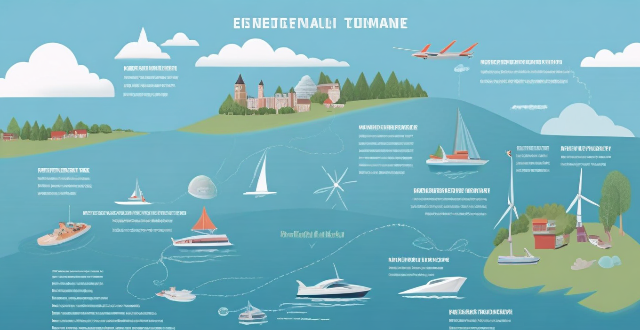Extreme weather events, such as hurricanes and floods, significantly impact the tourism industry by disrupting travel plans, damaging infrastructure, and harming local economies. Travelers may face cancellations, rescheduling, and transportation disruptions, leading to financial losses for both tourists and businesses. Damaged accommodations, inaccessible attractions, and reduced capacity can also deter visitors. Moreover, job losses and economic downturn can occur in areas heavily reliant on tourism. It is crucial for destinations to develop strategies for preparedness, response, and recovery to minimize these adverse effects.

Extreme Weather Events and Their Impact on Tourism
Extreme weather events, such as hurricanes and floods, can have a significant impact on the tourism industry. These events not only pose a threat to human safety but also disrupt travel plans, damage infrastructure, and harm local economies that rely heavily on tourism. Below are some ways in which extreme weather events affect tourism:
Disruption of Travel Plans
- Cancellations and Rescheduling: When extreme weather events occur, travelers may be forced to cancel or reschedule their trips, leading to financial losses for both tourists and businesses.
- Transportation Disruptions: Flights, trains, and other modes of transportation may be canceled or delayed due to severe weather conditions, causing inconvenience for travelers.
- Lost Revenue: Hotels, restaurants, and other tourism-related businesses may experience a drop in revenue due to cancellations and decreased demand during extreme weather events.
Damage to Infrastructure
- Destroyed Accommodations: Hurricanes and floods can cause extensive damage to hotels, resorts, and other accommodation facilities, requiring costly repairs or even complete rebuilding.
- Inaccessible Attractions: Popular tourist attractions may become inaccessible or closed due to damaged roads, bridges, or other infrastructure caused by extreme weather events.
- Reduced Capacity: Even if attractions remain open, they may have reduced capacity or limited services due to damaged facilities or safety concerns.
Harm to Local Economies
- Job Losses: The tourism industry provides employment opportunities for many people, especially in destinations heavily dependent on visitors. Extreme weather events can lead to job losses as businesses struggle with reduced revenue.
- Economic Downturn: The negative impact on tourism can contribute to an economic downturn in affected areas, as local businesses suffer from decreased spending by tourists.
- Long-term Recovery: It may take months or even years for some destinations to fully recover from the effects of extreme weather events, particularly if they lack adequate resources for rebuilding and attracting visitors again.
In conclusion, extreme weather events like hurricanes and floods have far-reaching consequences for the tourism industry. From disrupted travel plans and damaged infrastructure to harmed local economies, these events can significantly impact both tourists and businesses alike. It is essential for destinations to develop effective strategies for preparedness, response, and recovery to minimize the adverse effects of extreme weather events on tourism.